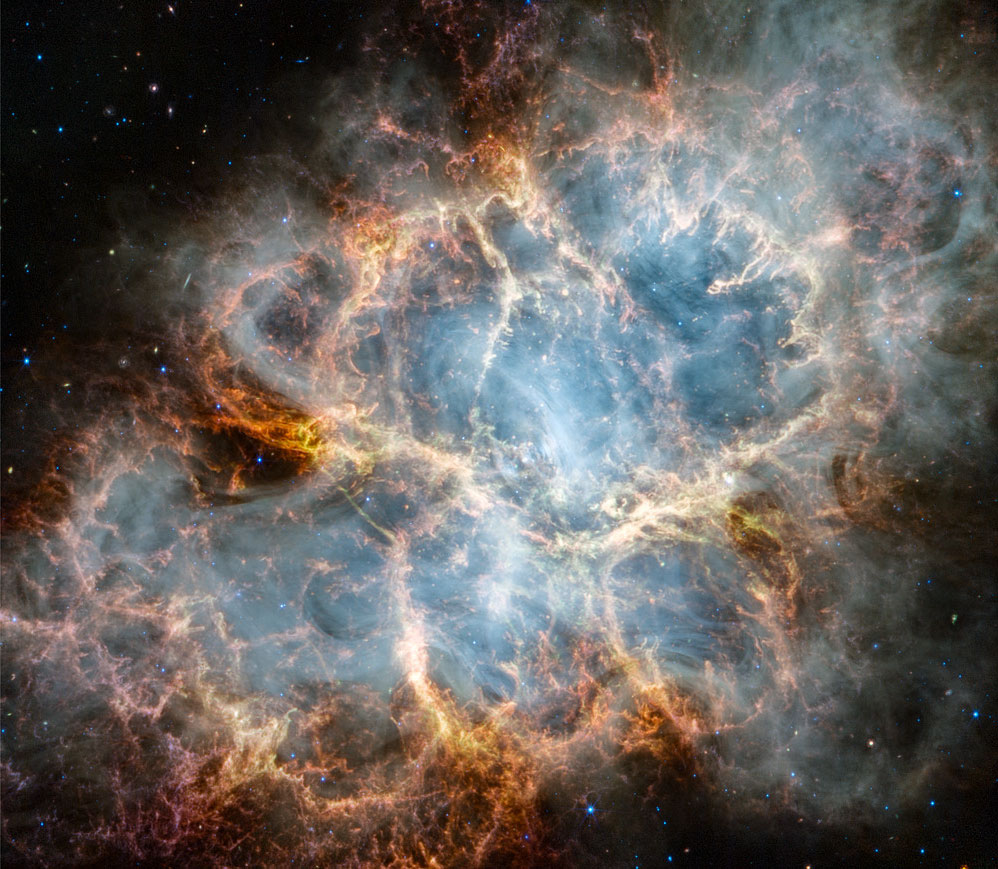M1: The Incredible Expanding Crab
Discover the cosmos! Each day a different image or photograph of our fascinating universe is featured, along with a brief explanation written by a professional astronomer.
Image Credit: NASA, ESA, CSA, STScI; Jeff Hester (ASU), Allison Loll (ASU), Tea Temim (Princeton University)
Explanation: Cataloged as M1, the Crab Nebula is the first on Charles Messier's famous list of things which are not comets. In fact, the Crab Nebula is now known to be a supernova remnant, an expanding cloud of debris from the death explosion of a massive star. The violent birth of the Crab was witnessed by astronomers in the year 1054. Roughly 10 light-years across, the nebula is still expanding at a rate of about 1,500 kilometers per second. You can see the expansion by comparing these sharp images from the Hubble Space Telescope and James Webb Space Telescope. The Crab's dynamic, fragmented filaments were captured in visible light by Hubble in 2005 and Webb in infrared light in 2023. This cosmic crustacean lies about 6,500 light-years away in the constellation Taurus.
Authors & editors:
Robert Nemiroff
(MTU) &
Jerry Bonnell (UMCP)
NASA Official: Phillip Newman
Specific rights apply.
NASA Web
Privacy Policy and Important Notices
A service of:
ASD at
NASA /
GSFC,
NASA Science
Activation
& Michigan Tech. U.
When you subscribe to the blog, we will send you an e-mail when there are new updates on the site so you wouldn't miss them.

